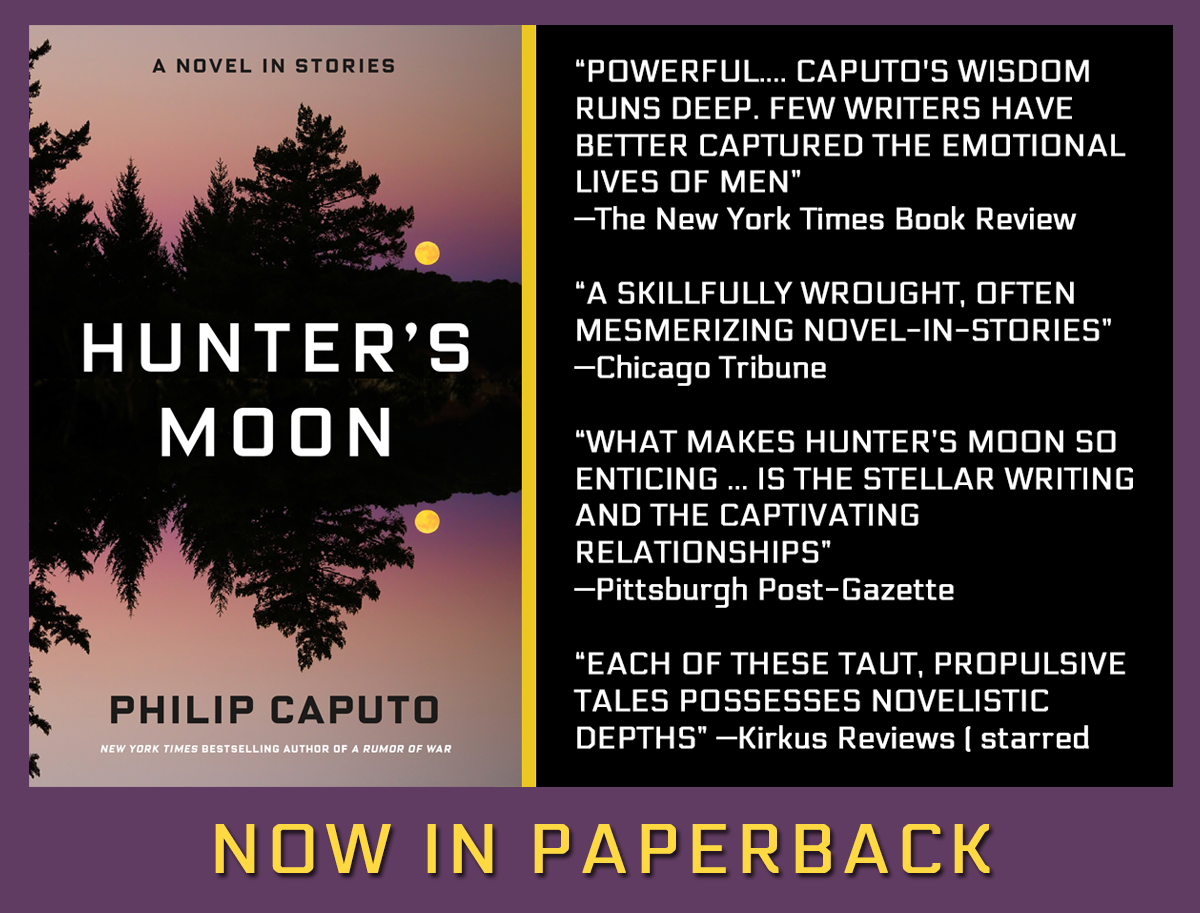BLOCKERS
1.
Tom lets a brief silence lapse before he asks, “Soooo—how is the pilgrim progressing?”
He doesn’t mean to sound snide and dismissive—it’s become his natural way of speaking, probably from cross-examining so many impeachable witnesses—but Lisa takes it as intentional, reproves him with a scowl, then lowers her glance to quarter the potatoes. “Fine. Doing just fine,” she answers, each word sliced off clean, as if her vocal cords are moving in synch with the knife. Fine chop doing chop just chop fine chop. “Took out a couple of term life policies last May, right after he hit the big five-oh. The insurance company said he had to have a physical. Passed with honors. The usual back problems, but he’s good to go for another half century.”
“Lisa,” Tom says, throwing a lift into the last syllable.
She motions impatiently at the bowls and pans on the kitchen counter and says with a trace of irritation, “Have you talked to the pilgrim himself about his progress?”
“Called him from Lansing to tell him we were on the way. And there’s some blah-de-blah, and he asks if we’re bringing any wine for ourselves, and I say no, we’ll drink sodas with dinner, don’t want to make things tough on him. And he goes, ‘No problem, dude. Not one drop since Hazelden. I’m dry as the Sahara, sober as the Imam of Baghdad.’ That’s what made the buzzer buzz. Sober as the Imam of Baghdad. Know what I’m saying?”
She doesn’t and turns to me, eyebrows furrowed. Thick, black, unkempt, they give her a glowering look.
“He means that I’ve-got-the-world-by-the-balls way Bill puts on when he’s bullshitting,” I tell her.
Lisa brushes a mustard sauce on the potatoes with strokes suggestive of painting Easter eggs, then lines them up in a roasting pan, pulls a pork loin from the refrigerator, soaks it in a marinade, and returns it to the fridge. She is a tall, big-limbed woman fifteen years younger than Bill, though her slumped shoulders and the lines at the corners of her mouth make her appear closer to his age. She’d learned to endure, growing up on a hardscrabble farm downstate, but, I suppose, marriage to Bill Erickson would wear on the sturdiest woman, in the same way that friendship with Bill Erickson wears on his friends.
Her preparations finished, she lights up, swoops out from behind the counter, shirttails hanging out of her Levi’s, coarse, rebellious hair flouncing on her shoulders, and falls into an oversize chair, flinging her legs over its arm. She sits there, puffing on a cigarette, staring out the French doors toward the lake, not saying a word.
“Okay,” Tom says into the disquieting quiet. “This isn’t something you want to talk about right now.”
“I was going to get into it, so it might as well be right now. He wasn’t bullshitting, not completely.”
She gets up, goes into the bathroom, and comes back holding a small brown bottle capped with a dropper. She sets it on the counter. The label reads: ZOLOFT (SERTRALINE) 60 ML. “All right, you two, do you swear on your mothers’ graves that this stays between us?”
Our mothers are still aboveground, but we swear anyway.
“He was dry after Hazelden, went to A.A., but you know, all those people babbling about one day at a time and how it’s all in God’s hands—not for him.” She jerks her head at the wall above the fireplace, where medals in a shadow box hang beside a photograph taken aboard an aircraft carrier during Desert Storm: Bill in a flight suit, helmet tucked under one arm, mounting a ladder to the open cockpit of a two-seat fighter jet. He didn’t fly the plane, although the picture makes it look that way. He’d failed to qualify for pilot in flight school but had passed the test for bombardier, the “G.I.B,” as he called it—the Guy In Back.
“But he stayed off the stuff,” Lisa is saying. “It must have been in March that he started getting these … these mood swings. He’d be his old self for a while, then the spells. Of depression. I’m not going into any details, okay?” She pauses and tilts her chin to exhale. “They were bad enough that I nagged him into seeing a shrink in Marquette. He told me that she told him that he’d been medicating himself with booze for so long, going off of it had sent him into a tailspin. She prescribed talk therapy and this stuff.” Gesturing at the bottle. “He saw her for, oh, maybe two months, then, Bill being Bill, he stopped and took himself off her meds and put himself back on his. No hard stuff but wine was okay.”
“Knew it,” says Tom, shaking his head, as wide and round as a soccer ball and almost as hairless.
“Doesn’t take much,” Lisa goes on wearily. “One glass he’s launched, two he’s in orbit, half a bottle and he’s on Apollo Twelve.”
“So … Houston, we have a problem.”
She corrects him—“That was Apollo Thirteen”—and turns defensive, offering all sorts of reasons for Bill’s modified tumble from the wagon. The Register was still in the red, and old Four-M (her shorthand for Media Mogul Myron McNaughton) was constantly on Bill’s ass to buck up the paper’s bottom line. Plus, Allison, the younger daughter, had been accepted to Stanford, so now he’d have both girls in private colleges—what the hell’s wrong with a state school?—and every dime earned from the Erickson Trust, what was left of it, and from his Navy retirement pay was going to alimony, so his ex could maintain her lifestyle out there in sunny California, and to tuitions, so his girls didn’t have to take out student loans. If it wasn’t for Lisa’s casino job, they’d fall behind on the mortgage payments, and then all this … She makes a sweeping movement to take in the house, the guesthouse, the ten acres of woodland with four hundred feet of lake frontage, rubs her palms together, and sighs, “So I guess he figured the vino would sand the edges, y’know?”
Her lips part in a mirthless quarter smile. “Except it didn’t. Know what I did? I got the prescription refilled and started spiking his orange juice every morning, and that seemed to help,” she confesses with a brittle laugh. “He thought it was the wine doing the trick. Up to about a week ago, we were in the old rut. Nothing stronger than coffee before six, then he’d hit it and end the evening speaking in tongues and then shake off the effects like a retriever shakes off water. And all the time, I was trying to convince myself that it’s better to live with a functional drunk than a dysfunctional one.”
She doesn’t deserve this is what I’m thinking when I ask what changed a week ago.
“We had a knock-down drag-out. End result? He promised he’d try again. Promised he wouldn’t drink while you guys were in camp, a new start. And he hasn’t touched a drop since, sort of getting himself in shape. I’m counting on you two to see that he keeps his word.”
Tom folds his hands on his ample belly. “Great! Looking forward to it!”
“The meds will help,” she replies, in a reassuring tone. “They keep the black dog in the kennel, and if it’s there, it’s easier for him to resist. One dropperful. I do orange juice because the concentrate clouds water and he’d notice.”
“Wait a sec,” I say. “You want us to…”
“I can’t be there.” She presses the bottle into my hand. There is in her touch an intimacy, a trust; it’s almost as if we’ve shaken hands on a solemn contract. “Squeeze the dropper, stir it with a spoon, takes half a second. He’ll never know the difference.”
We leave when she begins to set the table, release our dogs from the back of Tom’s GMC, then bring our overnight bags into the guesthouse, a one-room, prefab log cabin too finished to look authentically rustic. The bottle in my shirt pocket has a weight disproportionate to its size. I unpack my shaving kit and tuck the Zoloft inside.
We join the dogs, racing up and down what had once been lakeshore, across mudflats that had once been lake bottom. A long way out, duck blinds picket this year’s shoreline. Once upon a time not very long ago, you needed a skiff to reach them; now you can do it on foot, if you’re willing to slog through a hundred yards of muck. Hardly any snow has fallen the past three winters, depriving Lake Michigan of the spring runoff that had replenished it since, I suppose, the Ice Age. In the house, we’d seen yesterday’s edition of Bill’s newspaper. It carried the headline LAKE LEVELS AT RECORD LOWS. EXPERTS BLAME MILD WINTERS ON CLIMATE CHANGE and a photo of a dredger deepening the ship channel into Manitou Falls harbor. The caption reported that similar excavations were going on as far south as Chicago and Gary. That—the lake’s slow evaporation—was one of the things we’d been talking about before Tom flipped to the subject of the pilgrim’s progress.
I’m allergic to change. I’ve been married to the same woman, living in the same house, and teaching the same courses at Michigan State for twenty-two years and hope to continue for another twenty-two. Aside from reuniting with my two oldest friends, the whole reason I come back to the Upper Peninsula every fall is the familiarity of its unaltered landscapes. No suburban sprawl, no interstates, the two-lane blacktops and woods and rivers—all the landmarks of my boyhood—are pretty much as I remember them. Now this—dry land where there’d been none in living memory. Walking where I should be wading, I get the feeling that things are out of whack, that we’re on the edge of an epochal alteration in the order of the world. I picture the lake in the distant future: an enormous ditch littered with the hulls of long-sunken ships and pleasure craft and birchbark canoes, anthropologists studying the exposed bones of drowned children, sailors, fishermen, voyageurs gone under in unrecorded gales.
Copyright © 2019 by Philip Caputo



RECENT COMMENTS